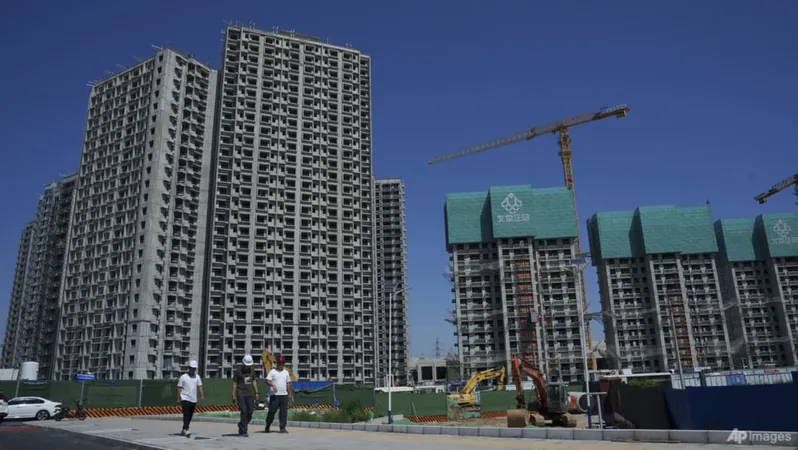
China Unveils New Tax Policies to Revitalize Struggling Real Estate Market: What You Need to Know!
2024-11-13
Author: Jia
China Unveils New Tax Policies to Revitalize Struggling Real Estate Market
In a bold move to invigorate its beleaguered real estate sector, China announced a series of tax policies on Wednesday (November 13) that are designed to encourage housing transactions and support economic growth. The measures, reported by state media, include significant cuts to property deed taxes and value-added tax (VAT).
According to the state broadcaster CCTV, the new tax incentives aim to support both basic housing needs and the improvement of living conditions. This initiative comes as the property market, which historically contributed around 25% to China's gross domestic product, has faced prolonged challenges, leading to a significant slowdown in growth. Authorities are striving to hit a GDP growth target of approximately 5% for 2024, making it crucial to revitalize the struggling sector.
In additional efforts to support the housing market, China's government revealed in October plans to provide over $500 billion in credit for unfinished housing projects. This financial injection aims to tackle the backlog of incomplete homes, which has further dampened market sentiment.
The latest set of measures, set to take effect on December 1, includes a higher threshold for homes qualifying for a reduced deed tax rate. The minimum size requirement is being increased from 90 square meters to 140 square meters, with a new uniform rate of 1% applying to both first-time and second-time homebuyers in major cities like Beijing, Shanghai, Guangzhou, and Shenzhen.
Furthermore, homeowners who have owned their properties for two years or longer will be exempt from VAT in these key urban centers, incentivizing the sale of older homes and promoting market liquidity. These reforms are expected to provide much-needed relief and stimulate consumer confidence.
Beyond these tax measures, the Chinese government has also initiated an ambitious plan to alleviate local government debt. A groundbreaking proposal has been approved to exchange 6 trillion yuan (approximately $840 billion) of hidden local government debt for official loans that come with more favorable terms. These hidden debts often remain undisclosed to the public and creditors, hindering transparency.
Analysts view this comprehensive package of reforms as a crucial step towards not only revitalizing the real estate market but also ensuring better economic stability. The measures are intended to encourage investment and consumer spending amid ongoing concerns of a sluggish economy.
As China navigates these complex economic waters, all eyes will be on the effectiveness of these new policies and their impact on the housing market and beyond. Will these changes be enough to restore investor confidence and revive the once-booming property sector? Only time will tell!

 Brasil (PT)
Brasil (PT)
 Canada (EN)
Canada (EN)
 Chile (ES)
Chile (ES)
 España (ES)
España (ES)
 France (FR)
France (FR)
 Hong Kong (EN)
Hong Kong (EN)
 Italia (IT)
Italia (IT)
 日本 (JA)
日本 (JA)
 Magyarország (HU)
Magyarország (HU)
 Norge (NO)
Norge (NO)
 Polska (PL)
Polska (PL)
 Schweiz (DE)
Schweiz (DE)
 Singapore (EN)
Singapore (EN)
 Sverige (SV)
Sverige (SV)
 Suomi (FI)
Suomi (FI)
 Türkiye (TR)
Türkiye (TR)